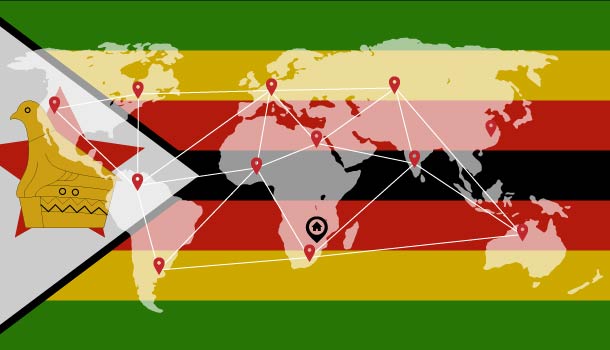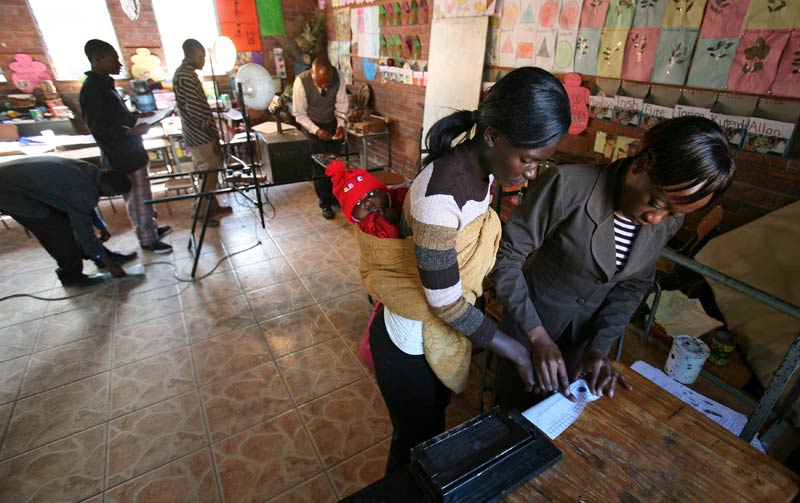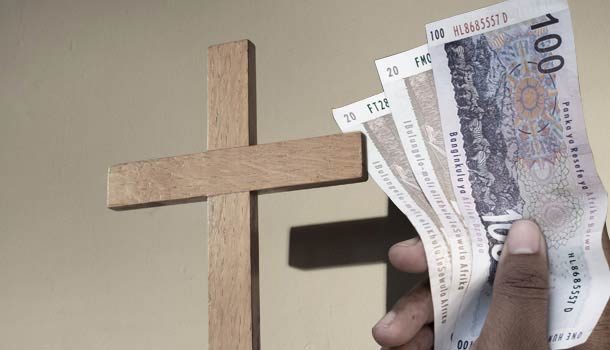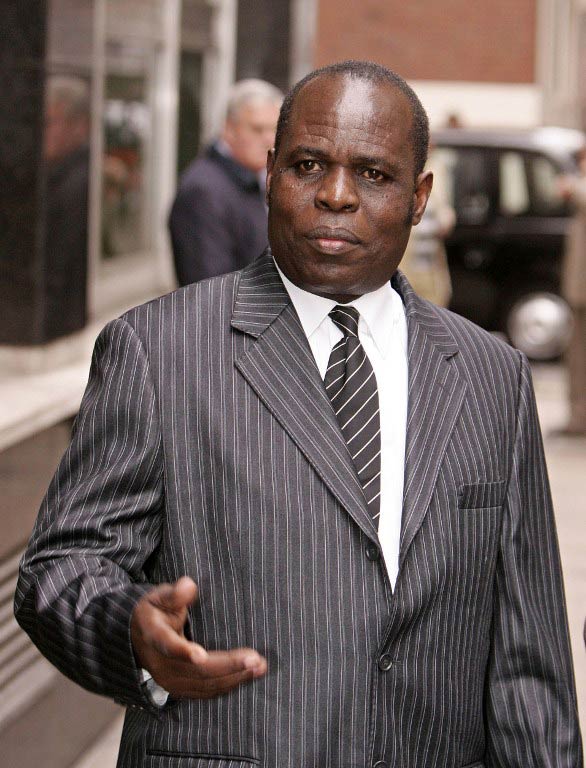It’s a custom in Ghana for the evening of December 31 every year to be dedicated to church activities. Christians all over the country go to church to pray and keep vigil as a new year dawns. The night of December 31 2011 was a special night. As usual, Christians went for the 31st night watch service; also called Crossover or Passover. I couldn’t make it due to sheer exhaustion so I watched the various church services being screened on television.
The dominant topic among Ghanaian pastors that night was “Pray for a peaceful 2012 election”. Lo and behold, 2012 came to pass and Ghana had a sixth consecutive presidential and parliamentary election in December. I’m not saying that it’s all thanks to God though. I believe that technology played a very crucial role in the election.
This blog post explores the many roles of technology in Ghana’’s 2012 election.
Pre-election
The Electoral Commission (EC) of Ghana announced in 2011 that the 2012 general election would be 100% biometric – i.e. the voters’ register will be a biometric register and voters will also be verified biometrically on election day. This announcement was received with mixed reactions. Supporters of technology thought this was a laudable idea that would go a long way to ensure a credible voters’ register, remove duplicate names, prevent multiple voting and prevent zombie voters. (Zombie voters are people who register under the names of friends or relatives who are dead, so that they can vote twice or more.) I, too, felt biometric was the best way to go. However the opponents of a biometric election ‘cautioned’ the electorate with funny myths. My favourites: biometric devices cause cancer and they can electrocute voters.
A group of prominent Ghanaian bloggers under the umbrella Ghana Decides were very active in a campaign to get people to register. Ghana Decides primarily used social media to drive citizens, especially the youth, to register.
After 40 days, the electoral commission successfully registered 14.5-million voters and thwarted over 10 000 fraudulent registrations. This was not possible with older modes of registration.
In previous years it was very difficult to access the manifestos of political parties and/or stay up to date with their campaigns. With this election though, political parties went beyond television, billboards, newspapers and radio to reach voters. Candidates harnessed the power of online advertising and social networking to connect with their constituents.
And when prospective voters were required to verify their names in the biometric voters’ register, technology saved the day. The electoral commission, having learnt from previous experiences of low turnout during the verification period, decided to add SMS verification to the traditional verification system. Hitherto, voters would have to travel to their polling stations to physically verify their names in the register. By applying technology this time around, Ghanaians were saved from the inconvenience of travelling and electoral officials could put the time saved to better use. The SMS verification system made it easy for errors in the voters’ register to be corrected in time to prevent confusion on election day.
In a bid to ensure accuracy and integrity of content in both online and traditional media, the Ghana Police Service established a media monitoring unit to swiftly deal with election-related issues.
The African Election Project, in collaboration with the Georgia Institute of Technology, Meltwater Entrepreneurial School of Technology and EnoughisEnough with support from the UK’s Department for International Development also established a Social Media Tracking Centre (STMC). The STMC was to monitor the use of social media during Ghana’s 2012 elections.
Google Ghana also launched the Ghana Election Hub, an information portal where citizens could keep track of news and information related to the election.
The efficient application of technology gave an indication that Ghana was going to organise a successful election. The European Union election observers even said they were not going to observe Ghana’s 2012 election. I am tempted to believe that the use of technology gave the EU assurance that our elections was going to be free, fair and peaceful. Perhaps they also realised how easy it would be to monitor the elections online; there was no need for them to travel to Ghana.
Election day

The election was held on December 7 2012 in over 26 000 polling stations across Ghana. All polling stations used the Biometric Verification Device (BVD) to verify voters.
It is claimed that this was the first time biometric verification was used during an election, and a record number of people were biometrically verified in one day. However, 1.6% of polling stations were forced to postpone the election to December 8, mostly due to some technical hitches. The hashtag #GhanaDecides trended on Twitter from December 7 – 9 2012.
Post-election
Social media continued to play a key role in Ghana’s election even after polls closed. There were healthy debates on Twitter, Facebook and in the blogosphere.
The electoral commisison’s website was a reliable source of information and certified election results. All media houses relied on it. In previous elections, the media houses would announce provisional results which were at odds with the electoral commission’s. These conflicting results generated tensions among voters in the past, as depicted in Jareth Merz’s documentary An African Election.
The efficient use of technology made it possible for the electoral commission to collate and declare national election results in less than the usual 72 hours after the close of polls. The world also learned about the beautiful story of another successful and peaceful African election via the internet.
The main opposition party is currently challenging the results of the presidential election in court. It is worth noting that technology again made it possible for the opposition to gather and analyse evidence for the court case, as a key witness admitted in court.
On the whole and thank to technology, Ghana’s polls were acclaimed as the most free, fair and transparent, raising the bar for other African countries.
On the night watch service on December 31 2012, the theme prayer was “all thanks to God”. Hallelujah!
Divine Puplampu is the co-founder of a technology start-up company called Zottech, which provides technological products and solutions to Ghanaian businesses and organisations. He is one of 10 young Africans shortlisted to be a One Young World delegate at this year’s summit. At this event, the M&G’s Trevor Ncube will be chairing a session on African media and what Africans think of their journalists. To share your views, complete this short survey.





